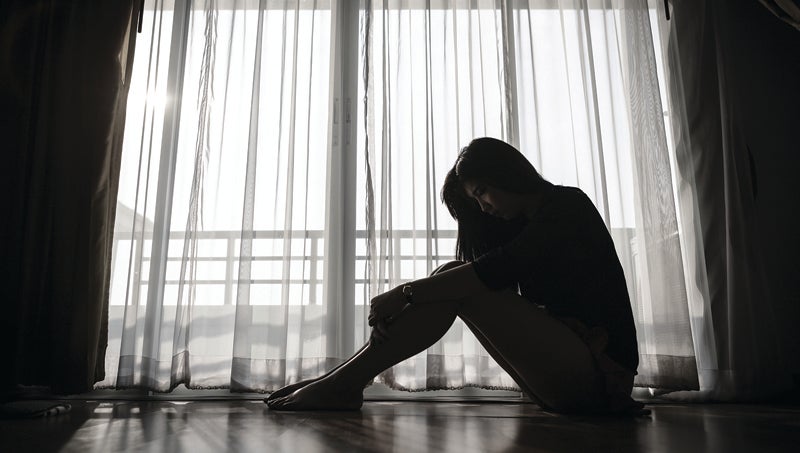Local resources offer way out of abusive relationships
Published 7:10 pm Thursday, January 23, 2020
Domestic abuse happens in Beaufort County almost every day. It can take many forms — physical, mental, emotional, financial. However it happens, whatever form it takes, this abuse is ultimately about power and exercising control over another person.
In some cases, such as a murder-suicide in Aurora this week, those situations can escalate to the point where they become deadly.
“Right now, we’re really reflecting on this situation and how it’s affecting our community as a whole — what it means and how real this is,” said Jaclyn Cullpiher, client services coordinator for Ruth’s House, Beaufort County’s domestic violence prevention organization. “Even working with this day in and day out, and working with community members who are victims, we’re all taken aback that our own community has now experienced something so devastating.”
Every day, the staff at Ruth’s House works with victims of domestic abuse in a number of capacities, including safety planning, counseling, legal advocacy and providing shelter for those who have had the courage to leave their abusers.
“Safety planning, to me, really feels like the strongest thing to take away from this,” Cullipher said. “There are ways out, and it’s not always escaping in the middle of the night or having a perfect plan. It is different for everybody and that is something we work with our clients to figure out.”
FINDING HELP, SEEKING JUSTICE
While numbers can’t do justice to the real stories of those struggling with domestic abuse, the statistics from Ruth’s House for 2019 paint an overview of the issue in Beaufort County. Last year, the nonprofit fielded 222 calls to its crisis line, went to court 58 times on behalf of victims, helped obtain domestic violence protection orders for 25 people and sheltered 42 people escaping abuse — 24 adults and 18 children.
Even still, domestic abuse is often under-reported, as victims are often fearful of the repercussions. But when it is reported, Cullipher says her organization works with the District Attorney’s office to see that abusers are held accountable. From making sure the charges fit the crime to obtaining domestic violence protection orders, Ruth’s House advocates for victims every step of the way.
“People think it has to be a black eye or some extreme event to qualify for a protection order,” Cullipher said. “Then I’ll say, ‘Have they ever threatened you?’ and they’ll say, ‘Well, yeah, all the time.’ That qualifies for a protection order. It doesn’t have to be that someone has hit you. We don’t want it to get to actual physical violence. That’s what a protection order is — a preventative measure. … You don’t have to wait until it gets that bad to get help.”
If and when charges are filed, District Attorney Seth Edwards says domestic violence cases can be some of the most difficult to prosecute, because victims are sometimes reluctant to cooperate with prosecutors. In some cases, he says the victim and abuser “kiss and make up,” continuing their life together. In other instances, the victim is subject to threats and intimidation, ranging from violence to financial cut off or taking custody of shared children.
“Domestic violence greatly impacts not only the abused, but their children, extended family and the community as a whole,” Edwards wrote Thursday. “This week’s events are tragic. If in fact this incident were prompted by a custody dispute, I am not totally surprised. Custody cases are often to most volatile cases in a courthouse. …We routinely prosecute and convict abusers without the victim’s testimony under what’s called an ‘evidence based prosecution,’ utilizing photographs, 911 calls and other types of documentary evidence. However, this scenario does not apply to every DV case.”
In 2004, Edwards applied for and received a federal grant through the Violence Against Women Act that allowed him to hire an additional prosecutor and two victim witness legal assistants. These assistants serve as the point of contact for victims and witnesses of abuse and other crimes.
A TROUBLING TREND
According to the North Carolina Coalition Against Domestic Violence, 56 people were killed in North Carolina last year as a result of domestic violence. They ranged in age from six months to 76 years old, coming from a diverse range of backgrounds and ethnic groups, in cities and small towns across the state.
Of those homicides, 18 of were murder-suicides, ending with both the alleged perpetrator and the victim losing their lives. All of those cases involved a firearm, with one taking place just across the Beaufort-Pitt county line.
Last May, Caitlyn Whitehurst, 25, was killed by her ex-boyfriend, Christopher Levon Garris, who then turned the gun on himself. Garris ambushed her as she was leaving her family’s property, firing a shotgun into her vehicle.
For the deputies of the Beaufort County Sheriff’s Office, learning how to appropriately respond to domestic violence situations is a standard part of training, according to BCSO Lt. Jim Vanlandingham. For a time, the agency had a grant-funded position specifically dedicated to investigating domestic violence cases. While that position no longer exists, all deputies are trained to share the resources available to help victims escape their abusers, Vanlandingham said.
In addition, victims of domestic violence are also provided with a brochure on the North Carolina Statewide Automated Victim Assistance and Notification program, which allows them to keep track of the offender’s custody status via text message, phone call or email. Locally, victims are also provided with information about Ruth’s House and the services the nonprofit provides.
TIPS FOR SAFETY PLANNING
Ruth’s house offers the following tips for safety planning:
- Develop a code system with trusted friends or family. These code words or phrases can be used to let the friend know when something is wrong, that you want them to come over or call the police for you.
- Don’t keep evidence of abuse on your phone. Instead, send it to a trusted friend or family member and delete it from your device.
- Know your escape route should you need it, taking into account all available exits. Don’t park your vehicle in a location where someone could block you in.
Additional resources and information can also be found at:
Ruth’s House (Beaufort County)
www.ruths-house.org
Help line: 252-940-0007
Hyde County Hotline (Hyde)
www.hydecounty-hotline.org
24-hour Crisis Line: 252-925-2500
Center for Family Violence Prevention (Pitt, Martin, Washington )
www.c4fvp.org
Crisis Line: 252-752-3811
Coastal Women’s Shelter (Pamlico, Craven)
www.coastalwomensshelter.org
Crisis Hotline: 252-638-5995
North Carolina Coalition Against Domestic Violence
National Domestic Violence Hotline
www.thehotline.org/help/path-to-safety
Hotline: 1-800-799-7233





